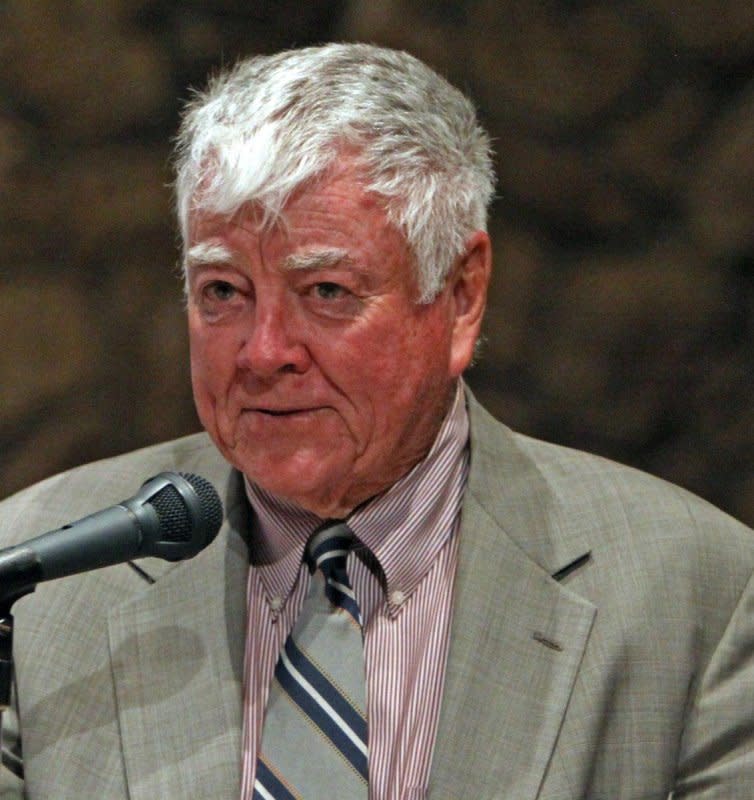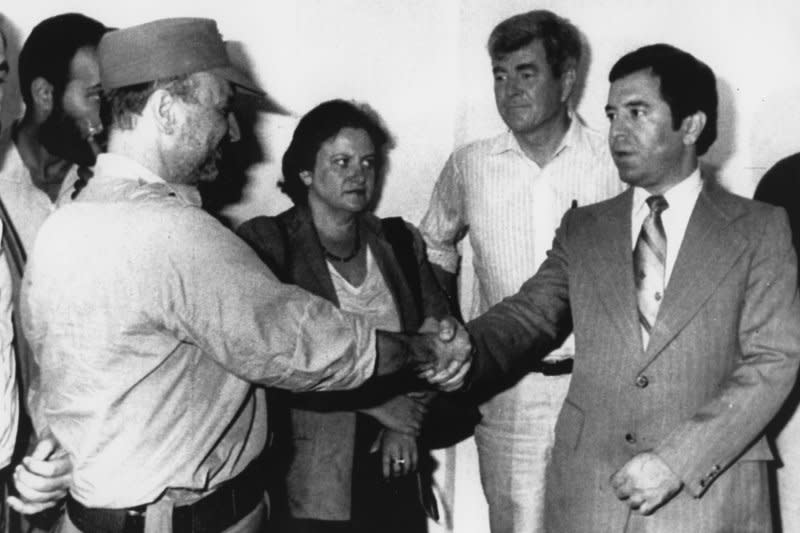Pete McCloskey, GOP congressman who challenged Nixon, dies at 96

May 8 (UPI) -- Pete McCloskey, a former California congressman who founded Earth Day and challenged President Richard Nixon for the Republican nomination in 1972, has died at the age of 96.
McCloskey died Wednesday at his home in Winters, west of Sacramento, according to family spokesman Lee Houskeeper.
McCloskey, who was born in southern California and graduated from Stanford and later Stanford Law School, was elected as a Republican to the U.S. House of Representatives to represent San Mateo County in 1967, after defeating Shirley Temple Black in a special election. He went on to serve seven terms in the U.S. House until 1982, when he unsuccessfully ran for the U.S. Senate.
Before getting into politics, McCloskey served in the U.S. Marine Corps during the Korean War, where he was awarded the Navy Cross and Silver Star.
"I got wounded twice," McCloskey told ABC7 in an interview. "The ridge lines were so narrow that you couldn't say 'Sergeant, take the hill.' You just had to say 'follow me,' because you could only get one guy on the hill."

Despite serving in the Korean War, McCloskey was outspoken in his opposition to the war in Vietnam -- calling it a war that could not be won -- as he tried to unseat Nixon for the Republican nomination in 1972.
"To talk, as the president does, of winding down the war while he is expanding the use of air power is a deliberate deception," McCloskey said during his campaign for the nomination. "I'll probably get licked, but I can't keep quiet."
"When McCloskey came out against the war in Vietnam, as a Marine war hero, it was a big deal," said environmental activist Robert Caughlan, who was also a friend of McCloskey.
Nixon ultimately won the nomination and went on to win the presidency in a landslide before resigning two years later during the Watergate scandal. McCloskey was the first member of Congress to call for Nixon's impeachment.
Throughout his congressional career as a Republican, McCloskey's stances on the war, the environment and Israel were controversial, ultimately leading him to switch parties to become a Democrat in 2007. He called "the new brand of Republicanism" hostile to progressive causes.
McCloskey protested the war in Vietnam and later criticized Israel as a lecturer at Stanford. He introduced environmental legislation including the Endangered Species Act of 1973, and was also the co-chairman of the first Earth Day held on April 22, 1970.
"Well, perhaps the greatest achievement, and we didn't know it at the time, was we held an Earth Day in 1970, and out of that Earth Day a lot of students got involved in saving the environment, or trying to," McCloskey said as he reflected on the designation years later.
Earth Day, which is now observed in 192 countries, will celebrate 55 years in 2025.
"I think that he was a hero for the environment," said Caughlan. "A hero for peace and a hero in war. He led a truly heroic life."


